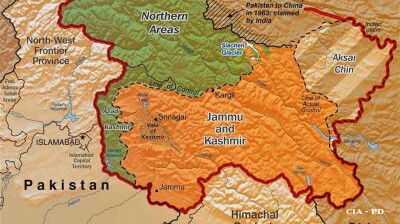Thailand finds itself once again ensnared in political turmoil, with Prime Minister Paetongtarn Shinawatra suspended by the Constitutional Court on July 1, amid an ethics investigation over a leaked telephone conversation with Cambodian former premier Hun Sen.
The call itself was, at first glance a seemingly minor issue, but one that offended tens of millions of Thai nationals just weeks prior to the two nations clashing over long-standing territorial claims.
In that call in question, both domestic and international media reprted Paetongtarn as referring to Hun Sen as “uncle” while also appearing to disparage a senior Thai military commander - rarely a misstep forgiven in a country where the military and monarchy hold substantial sway, The Times reported.
This crisis that follows - and is ongoing - mimics a familiar script: the Bhumjaithai Party withdrew from her coalition in mid-June, eroding her parliamentary majority and plunging the government into disarray.
The political backlash this led to saw protests swell in Bangkok, with critics accusing Paetongtarn and her influential father, Thaksin Shinawatra, of presiding over a dangerous diplomatic blunder and undermining national dignity AP reported at the time.
Yet what of the monarchy? Thailand’s monarchy remains the country’s most sacrosanct and enduring institution, buttressed by draconian lèse-majesté laws and the concept of the “network monarchy” - a web of royal proxies and conservative institutions that help shape political realities behind the scenes.
So far, the palace has remained conspicuously detached from public commentary on the crisis – and wisely so.
The royal prerogative to grant or withhold assent for key ministerial and constitutional proceedings continues unaltered, but the monarch has not publicly at least intervened in the suspension.
Nevertheless, Paetongtarn’s father, Thaksin, is himself facing legal scrutiny – having been charged under lèse-majesté law, and facing up to fifteen years in prison if convicted, Reuters reported in early July.
Analysts and even casual observers note that the repeated ousting of Shinawatra family figures - Thaksin in 2006, Yingluck in 2014, and now Paetongtarn - stems from deeper institutional fears about populist dynasties upsetting established order in Thailand.
The monarchy, meanwhile, remains for the majority of Thais at home and abroads, a stabilising symbol for the conservative establishment, reinforcing the enduring tug-of-war between elected governments and unelected power structures.
As such, for now, while Paetongtarn’s suspension directly challenges the Shinawatra dynasty, again, it leaves the monarchy’s position intact and, in certain quarters, strengthened. In a nation in which the monarchy is so beloved, the spectacle of divisions and dissent, particularly when framed as a threat to military professionalism and national sovereignty, tends to bolster royalist sympathies and the monarchy’s moral authority.
To this end, as much as the immediate political crisis centres on the suspended prime minister and her fracturing coalition, the monarchy, for all its constitutional limits, remains central to the narrative - untouched but omnipresent and once again a force deployed by the establishment as both shield and steadfast anchor during successive political storms.
Features

BEYOND THE BOSPORUS: Prosecutors make move on “fictitious export schemes” of Istanbul Gold Refinery
Observers point to intra-regime gangs seizing each other’s wealth, remember Erdogan’s “Hello Fatih” phone calls and ponder whether wanted man Turgay Ciner is in London.

Taliban visit to India upsets Pakistan, signals New Delhi's changing Afghan posture
Coinciding with the visit, Pakistan conducted military operations inside Afghanistan, followed by airstrikes on multiple border towns. Retaliation against Pakistan's police training facilities and border outposts followed.

Pakistan’s India-shaped chip on the shoulder, and why a peaceful coexistence is as elusive as ever
Pakistan must first redefine how it sees India - not solely as a threat to be contained but as a neighbour with whom coexistence is unavoidable. That psychological leap has eluded generations of Pakistani leaders.

Trump shocked by China’s move on rare earths, threatens more 100% tariffs
"Some very strange things are happening in China!" Trump wrote in a post on his Truth Social account on October 10, adding "They are becoming very hostile."




